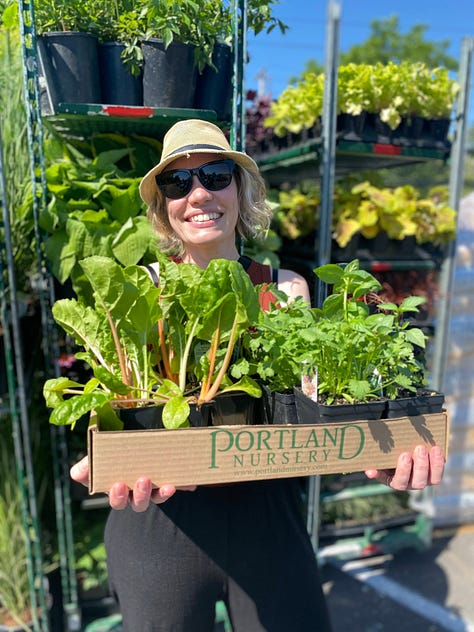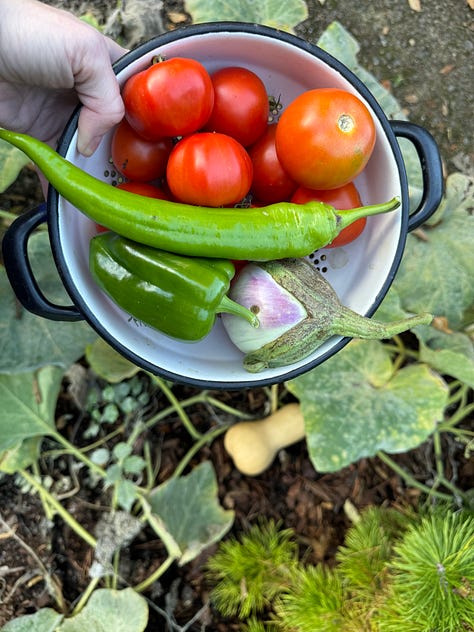Do We Ever Stop Learning?
How the title of “expert” holds us back from ourselves
In a recent interview with fire-making teacher, Marina Rivera (who you’ll get to hear from in the next podcast interview), she did this beautiful thing of reflecting my words back to me. I had said “I don’t expect to become a master in firemaking…” in the middle of a question I was asking.
She responded with this: “I have this quote that runs in my head all the time, and it's ‘those who say they can and those who say they can't are both usually right.’ And I just hear that and it just sounds like you’re limiting yourself.”
Damn if she wasn’t right. The moment she pointed that out, I started to see this tendency everywhere I looked and whenever I was in conversation with people. We adults tend to gloss over the words that come out from habit. After Marina pointed this out, I started to realize how much I’ve said (and written!) some version of this on this journey: “I don’t have any intention to become a master gardener” or “I’m never going to be an expert in carpentry.” And while perhaps there might be a nugget of truth in that, it’s a tactic that I’ve learned through my 42 years on this planet to dismiss myself, to lower my expectations, and to separate myself from those who do that thing and those who don’t.
It’s a tactic a lot of us take. And if I’m being honest, it’s a tactic women and other people who don’t identify as male tend to take based on messages that we’re fed. One of those messages is that patriarchal and paternalistic binary that there’s an expert in something and there’s everyone else.
What I loved about Marina’s gentle reminder was that she’s basically calling bull shit on that. Is there really such a thing as an expert? Does our learning ever stop? Isn’t it that the more we learn, the more we understand what we don’t know?
It’s made me go down a rabbit hole of what it means to build knowledge and experience and expertise and thinking about all of the times where I’ve actually pushed past the messages I was telling myself. For example, growing up, I never thought I’d be a professional writer. As a Peace Corps Volunteer in Malawi, I would tell people that my “dream job” would become a travel writer. I never took any steps in that direction despite saying this so many times out loud to people. A dream is all it was to me. Not a reality. I figured since I hadn’t gone the school paper route in college, I missed my boat and ended up going a different route in social justice education (a route I do not regret in the least). Yet, I didn’t stop writing. I published some blogs just for the fun of it. But then one day, a colleague of mine at Johns Hopkins University–where I worked in a job I truly loved as the associate director of SOURCE, the community engagement and service-learning center–mentioned that she had just graduated from the JHU MA in writing program. She was a single mom of two young boys and I was in awe of her badassery for following the path of a writer. From her urgings, I applied and was able to use my employee tuition remission to help me justify getting a second (!) master’s degree. And that set me off on the writing path I’m on today. It was a gradual movement into writing as a profession, but then one day I realized “oh shit, I actually did it, I’m a professional writer.”
It would still be years after entering the writing program before I’d feel comfortable calling myself a writer. And to tell you the truth, I still feel like an imposter saying it (confession: most of the published, incredibly accomplished, supremely talented non-male writers I know suffer from this imposter syndrome affliction as well). Yet somehow I’ve gotten to a point when that little voice in my head saying who are you to call yourself a writer? has gotten softer and softer. A lifetime of socialization certainly isn’t going to make it go away, but as I built my confidence–with the incredible support of other writers around me–I’m able to shut that negative voice out more.
I did the same with gardening constantly telling myself that I was shitty at it, that I have a black thumb, that I just don’t really like it. And then when this journey had me really focusing on it and trying a bit harder and not dismissing my abilities, it turned out that I could actually grow things and that I did actually like gardening.



When Marina pointed out this dismissal of my potential in firemaking and any skill for that matter, she said “I think to some degree, being a master is a matter of perspective and in willingness to so. I honestly don't consider myself a master either.”
For her and for so many, it’s a journey that starts in a place where you have the willingness, openness, and humility to learn something new. And then when you start that journey, you move to the next step, and then the next, and then the next. It never ends, really.
Then it comes to the question about whether there is truly an end to our learning. I believe that there is no end to learning. It’s hubristic to think that we can absorb all there is to know about the world in one short lifetime.
Since having that conversation with Marina, I’ve decided to be intentional about my words about this journey and catch myself before saying things like “I don’t expect to become an expert” or some such statement. If I keep myself open to learning, perhaps I will hear and listen to the aspects of a skill, a way of being, and the world that would elude me if I blocked out my potential.



I was running for about a year before I called myself a runner. It wasn't even myself who did it, it was a friend that introduce me as her "friend that loves to run." "Oh!" I thought, "I'm that person now, I'm a runner."
For whatever reason I had built it up in my head as this thing I needed to do for X years, to run X km a week at X speed, before I could call myself a runner.
Now I'm training for a triathlon. My first one will be due in 2 months, but I already know I'm a triathlete.